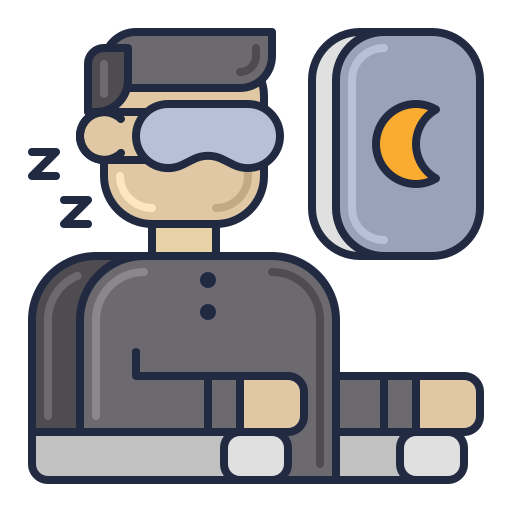For anyone dealing with sleep apnea, a CPAP machine isn’t just an accessory. It’s a lifeline. These devices keep the airway open, ensuring a restful sleep and, more importantly, safeguarding health. When the power goes out, having a CPAP running can be critical.
Power outages can happen unexpectedly, and when they do, anyone relying on a CPAP machine faces a potential health risk. Without backup power, sleep disruptions are almost guaranteed, leading to restless nights and exhausted days. Not to mention, serious complications can arise if respiratory issues are left unmanaged during an outage.
Backup power isn’t merely about convenience. It provides peace of mind, knowing that you’re protected and can continue using your CPAP through the night, regardless of external situations like storms or grid failures. For those with severe sleep apnea, this is especially comforting.
Investing in a backup power solution ensures continuous therapy throughout the night. It’s about creating a reliable safety net that supports your health and well-being, even when the lights go out. Trust me, waking up feeling refreshed and knowing your device will always be available feels invaluable.
So, in this post, we go over what your best options are to keep your CPAP running during a power outage.
Assessing Your CPAP Backup Power Needs

Choosing the right backup power for your CPAP starts with understanding your specific needs. CPAP machines vary widely, so do their power requirements, and figuring out what suits you best can make all the difference.
Check Your Device for Power Compatibility
First off, consider the type of CPAP device you have. Whether it’s a continuous pressure, bilevel, or a smart automatic machine, each has its own power draw. Check the device label or manual to discover exactly how much power it uses. This helps in estimating how long a particular backup solution can last during an outage.
Evaluate Your CPAP Machine Usage
Knowing your typical sleep duration every night is another critical factor. You want a backup that can comfortably handle your device’s power needs for at least that long, plus a bit extra to be safe. Consider how often outages might happen in your area. Frequent outages might mean investing in something more robust.
Think About the Features of Your CPAP Machine
Factor in added features your CPAP might have. Features like heated humidifiers or heated tubing increase power consumption, so you’ll need a more substantial power source to keep everything running smoothly.
Ultimately, evaluating these aspects will steer you towards a reliable backup power option. It’s like matching the right-sized battery to your laptop; you want efficiency and reassurance that your CPAP will see you through the night without a hitch.
Exploring Backup Power Solutions for CPAP
Navigating the world of backup power options can be a bit overwhelming at first, given the diverse choices available. From small battery packs to extensive uninterruptible power supply (UPS) systems, understanding the pros and cons of each can guide you to the perfect match for your needs.
UPS Systems

Let’s start with UPS systems. These are great for short-term solutions, ready to kick in the moment your main power drops. UPS units connect directly with your CPAP, ensuring no interruption. The downside? They usually don’t last more than a few hours, which might not cover you through a lengthy outage.
Portable Power Stations

Portable power stations offer more versatility. These units typically have higher capacities, giving you extended usage times. They’re not just for your CPAP—you can use them to charge your phone or even power other devices. Look for ones with multiple outlets and consider their charging time when they’re drained.
Back-Up Batteries

Lithium battery packs designed specifically for CPAPs are another solid choice. They’re compact and usually airline-approved for travel, plus quieter, ensuring no additional noise during sleep. Keep an eye out for the ones offering a decent lifespan per charge; it provides peace of mind.
>>Check Out Our Options of the Best Battery Packs Here<<
Before making a decision, consider your daily routine and potential scenarios—whether you frequently travel or tend to experience more extended outages in your locale. Balancing cost, convenience, and reliability is essential. Take time to weigh these options, knowing that the ideal power backup isn’t just a piece of equipment; it’s a ticket to restful, reliable nights.
Ensuring Seamless Transition and Regular Maintenance
Switching to backup power smoothly is about having a practical setup. Always familiarize yourself with your backup system before you need it. Run a test to see how your CPAP transitions from main to backup power. This helps you spot potential issues early, avoiding surprises when you least want them.
Another crucial step is regular maintenance. Check your backup’s condition every few months. Batteries degrade over time, and you need to be sure yours is up to the task. Most systems have easy-to-read indicators showing charge levels—keep those in view.
Consider creating a power outage checklist. Include steps like ensuring your backup is plugged in and charged, as well as any device-specific actions like switching off additional features to conserve energy when running on backup.
Monitoring performance is important, too. For any strange noises or interruptions, consult the manual or reach out to support. Addressing minor glitches early keeps everything running smoothly.
Think of your backup system like a spare tire in your car. It’s there for peace of mind, but it needs occasional checking to ensure it’ll work when you need it. By keeping tabs on your CPAP backup power, you’re investing in stable and worry-free nights.
Final Thoughts

If you are a CPAP User that travels with your device, having backup power is crucial. You always need to be prepared in the event of an outage while traveling.
You truly never know what unexpected weather conditions could cause issues and leave you powerless. So, having a backup power supply can be a life saver for your sleep therapy.
I personally have a portable power station that I take with me while on trips. It has been a great device to have handy. Not only does it power my CPAP machine, but other devices I may take as well.
It has been great to use while camping and truly has helped in emergencies where I had no power. There are good options in this post for backup power, but a portable power station would be my top suggestion.
If you would like to browse your best options for backup power, check out the link below. Thank You for Reading this Post.

